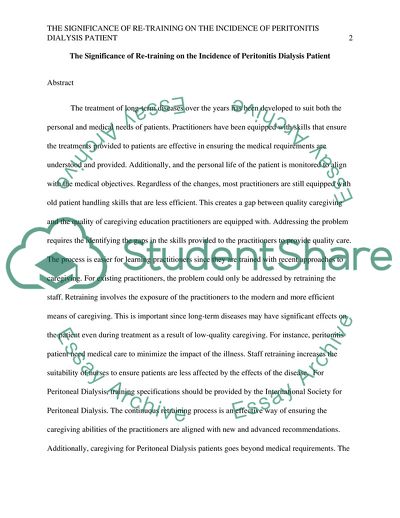Not Found (#404) - StudentShare. https://studentshare.org/nursing/1879518-re-training-on-the-incidence-of-peritonitis-in-peritoneal-dialysis-patient
Not Found (#404) - StudentShare. https://studentshare.org/nursing/1879518-re-training-on-the-incidence-of-peritonitis-in-peritoneal-dialysis-patient.


